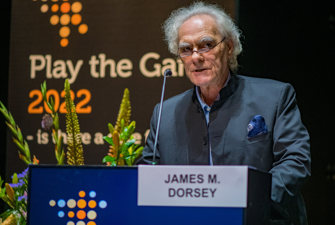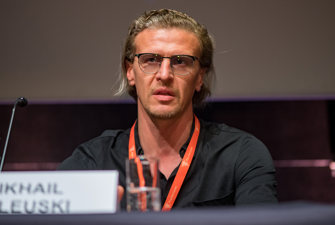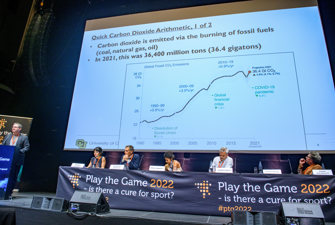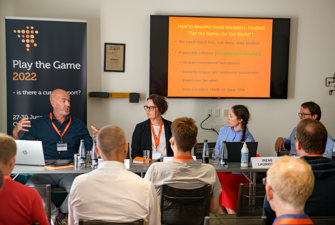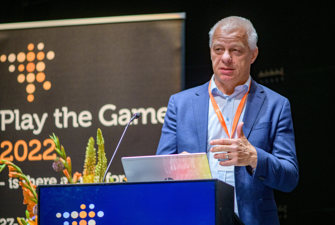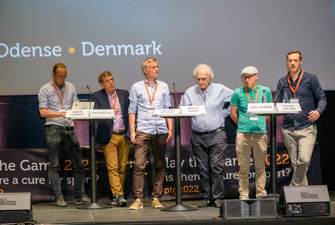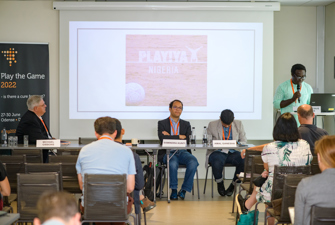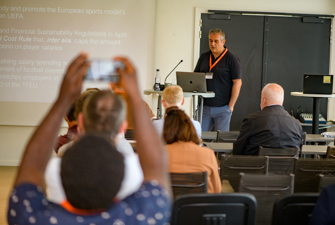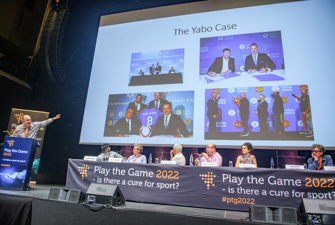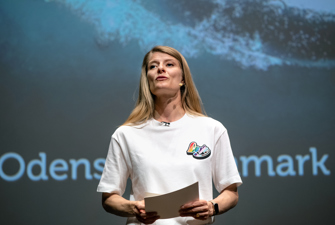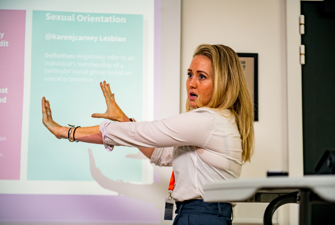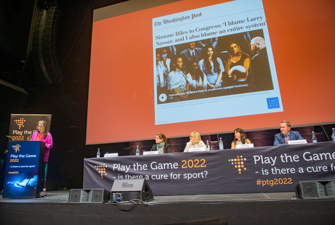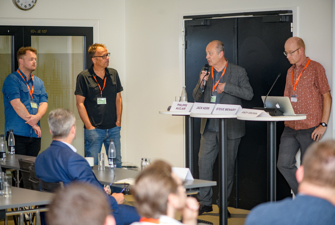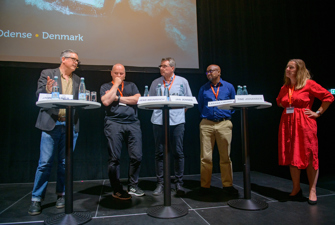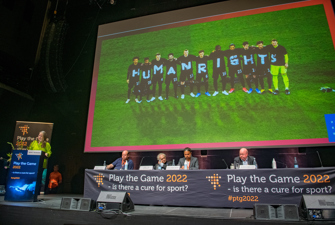Proposal for independent sports integrity body to be unveiled in September
Viola von Cramon-Taubadel, a German member of the European Parliament for the Green Party, told the Play the Game conference about an upcoming proposal from the Green Party bloc to set up a World Anti-Corruption Agency.
Proposals for an independent sports integrity body that have been developed by the Green Party bloc in the European Parliament will be unveiled in September.
This was revealed in a late afternoon session at Play the Game by Viola von Cramon-Taubadel, a German member of the European Parliament for the Green Party.
Ms von Cramon-Taubadel said: “We have a problem with integrity in international sports. And this has not just been known yesterday. It’s becoming worse and we need something to fix this market failure. What we have seen in the last few years is a market failure. This is because sport regulates itself.”
“That is why we need a World Anti-Corruption Agency. If we start building up new foundations, we can start from scratch with an independent board that is more independent from world sport than WADA,” she continued.
“We will publish the presentation and a study soon. We want to start lobbying for this in the months to come. We will circulate it around European capitals and to those countries that want to promote cleaner sport.”
She explained that the putative agency would involve bodies such as European law enforcement body Europol at executive and board level and also look to engage fan organisations as the main consumers of sport in her view are “completely neglected.” She added that the target would not simply be athletes.
“WADA typically approaches athletes but the target would be the actual fixers. This would be one of the main goals,” added Ms von Cramon-Taubadel.
Earlier on the same panel, a range of techniques to investigate corruption were unveiled together with a clear call from Nick Raudenski, former head of integrity at UEFA and FIFA and now head of intelligence and investigations at the International Testing Agency, to change the narrative to an intelligence-led approach.
He said: “We need to be proactive in getting intelligence and being in an actionable position.”
The rise of illegal betting
Journalist Jack Kerr explained how he identified the link between grass roots sports in his native Australia appearing on unlicensed betting markets in places as far away as Russia.
“Once you collect data from these lower-level sports there’s no way of it not going to the worst operators,” said Kerr.
These unlicensed betting markets represent the biggest threat to the integrity of sport, argued Martin Purbrick, chairperson of the Asian Racing Federation Council on Anti-Illegal Betting and Financial Crime.
“All sports are now betting sports. A few years ago, 80 per cent of sports fans were fans and 20 per cent were bettors but that has now been reversed,” said Purbrick.
Illegal betting has risen by 64 per cent in the last two years according to the ARF’s research with an increasing focus on low-level sports which are easier to corrupt due to lack of integrity provisions. As an example, Purbrick cited games from the Icelandic fourth division that he found offered by one of Asia’s biggest illegal betting operators just before the presentation.
After unveiling a sorry tale of manipulation in international skiing in attempts to qualify for the Winter Olympic Games, Federiga Bindi, director of the Alta Badia Ski Academy, said: “How do you make match-fixing as relevant as doping because it is relevant?”
For von Cramon-Taubadel, the stories on the panel were exactly why a new agency was needed.
“The idea for this body should have a known code of conduct and the mandate is much of what we have seen here this afternoon,” von Cramon-Taubadel.
